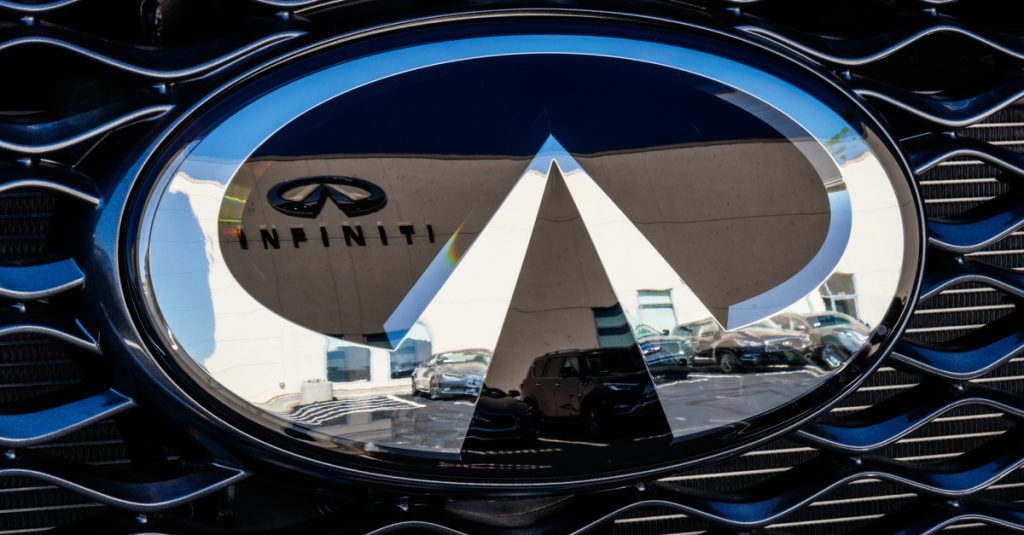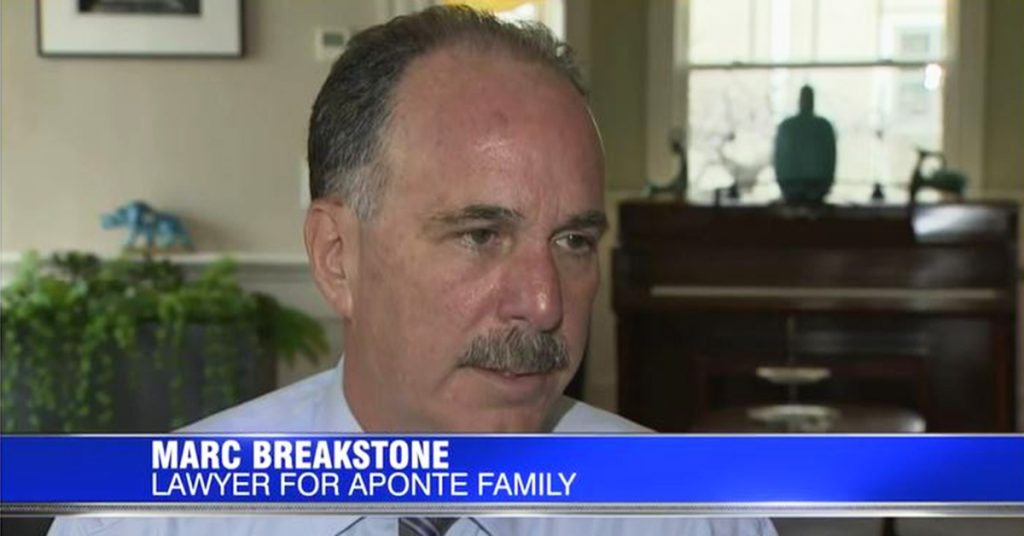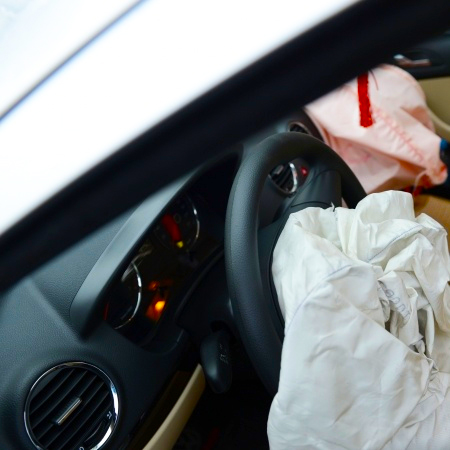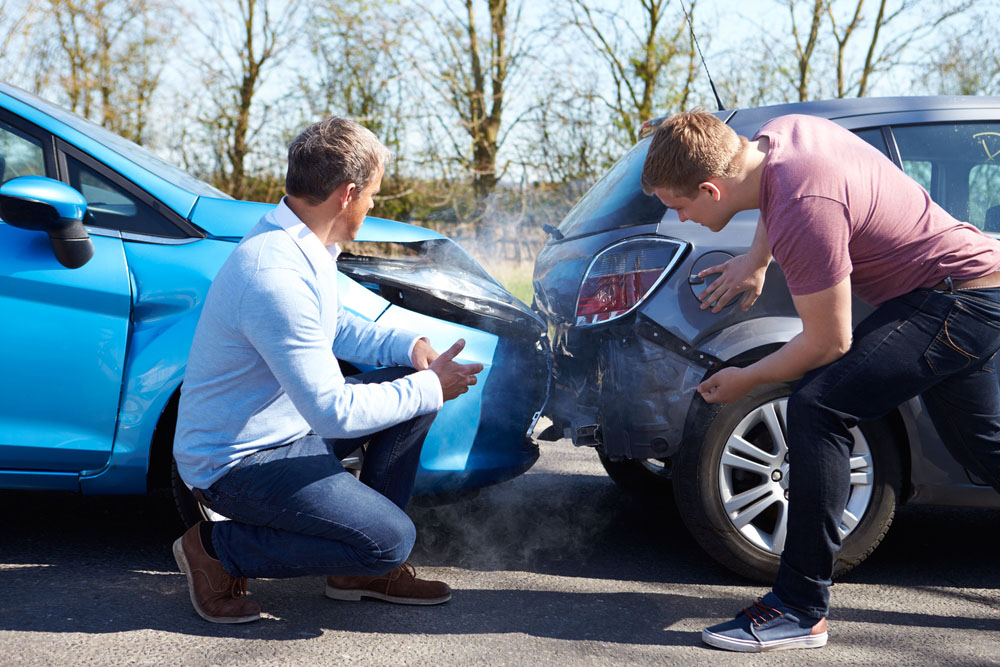Posts Tagged ‘“Boston car accident lawyer”’
Ford, GM and Nissan Make Auto Recall Headlines in 2019
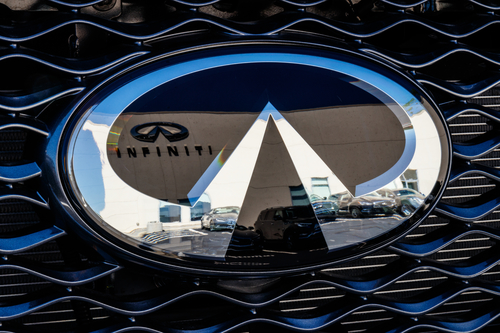
Nissan has recalled 1.23 million vehicles because the backup camera displays are not working properly (Sept. 2019)
It is always wise to stay informed about your car and to regularly check for auto recalls. This was the lesson of the past decade and is sound advice again in 2019, as General Motors, Ford and Nissan have announced new safety defects.
General Motors Recalls
General Motors (GM) has issued several recalls during 2019, most notable 3.5 million SUVs and trucks with faulty brakes. This recall was announced in mid-September and was associated with 13 related injuries and 113 car crashes, according to Consumer Reports. This was a known problem in some GM models, including the Chevrolet Silverado, GMC Sierra pickup trucks and the Chevrolet Tahoe.
The National Highway Traffic Safety Administration (NHTSA) has been investigating since November 2018, when it received complaints. General Motors has been repairing vehicles since December 2018. A Canadian recall was issued in June.
The GM vehicles have a defect with a powered brake-assist system, potentially impacting the amount of pressure required to stop. There are several warning signs: drivers may experience a vibrating brake pedal, hear a ticking noise or see a message reading “Service Brake Assist” on the dashboard. GM dealers can re-program the braking software at no charge.
Nissan Recalls
Don’t trust the backup camera display if you are driving a Nissan. The automaker has just recalled 1.23 million vehicles – including many of its most popular models – because the backup camera displays are not properly returning to their default settings. This recall involves 2018 and 2019 models of the Nissan Altima, Nissan Murano, Nissan Pathfinder, the Infiniti and numerous other models. No injuries were reported. Read more.
Ford Recalls
Ford has also made negative headlines. Back in January, the automaker called back 953,000 vehicles worldwide as part of the ongoing Takata airbag recall. More than 782,000 vehicles were in the U.S. market. The recall covers 2010 through 2014 models, including the Ford Edge, Ford Ranger, Ford Fusion, Lincoln MKZ, Mercury Milan and the Ford Mustang.
Automakers continue to recall the Takata airbags, which have caused dozens of deaths and hundreds of serious injuries. The deadly recall has now touched 41.6 million vehicles, according to the NHTSA. While these recalls were first announced years ago, the NHTSA says the repairs must happen in phases over time. Priority has been given to the oldest vehicles in Florida and other warm weather states.
In August, more bad news and another recall. Ford announced that more than 550,000 more trucks and SUVs in North America had glitches – the backseats were not providing proper restraints. Among the vehicles: certain 2018 through 2020 models, including F-150 pickups, Super Duty trucks, Explorer SUVs and Expedition SUVs.
Toyota Recalls
In August, Toyota recalled 135,000 Corollas and Matrix hatchback vehicles from model years 2005 to 2008, according to Cars.com. These vehicles had airbags which needed replacement due to the Takata recalls, but these repairs were previously made and were not related to the latest recall.
Check Your Vehicle for Safety Recalls
You can visit the NHTSA website to check if your vehicle has been subject to a recall.
Boston Product Liability Lawyers – Free Legal Consultation
With more than 100 years combined experience, Breakstone, White & Gluck is known as one of the best personal injury law firms in Massachusetts. We have extensive experience handing cases which involve car accidents, truck crashes and pedestrian injuries in Boston and other communities. In some cases, a defective part may contribute to a car crash and injuries. Our attorneys have investigated and aggressively represented clients in these cases, ultimately obtaining the financial compensation they deserve.
If you have been injured in a car accident in Massachusetts, learn your legal rights. For a free legal consultation, contact us at 800-379-1244 or 617-723-7676 or use our contact form.
Drivers Running Red Lights Causing Record Number of Car Accidents in Massachusetts, Across the U.S

Drivers who run red lights are causing a record number of deaths in Massachusetts and across the U.S., according to a new study.
While red means stop, we have all seen cars speed on, especially if you live in Boston. Our attorneys have represented countless clients who have been seriously injured or killed by another driver’s recklessness at intersections. Now, a new study reports running a red light is causing a record number of traffic fatalities across the United States. From AAA’s Foundation for Traffic Safety:
- Red light running crashes have reached a 10-year high in the U.S.
- 939 people were killed when drivers sped through red lights in 2017, a 28 percent increase over 2012.
- More than a quarter of all intersection accidents happen because drivers run red lights.
- Nearly half of those injured in red light crashes were passengers or occupants of other vehicles. Pedestrians and cyclists accounted for more than 5 percent of fatalities.
- Over 35 percent of traffic deaths were red light running drivers themselves.
- 85 percent of drivers consider it very dangerous to run a red light, yet one in three reported speeding through one in the past 30 days, according to AAA Foundation’s Traffic Safety Culture Index.
- On the same note, nearly half (more than 2 out of 5 drivers) found it unlikely that they would ever be stopped by law enforcement.
- Despite these responses, running a red light can have serious consequences, resulting in a possible insurance surcharge or criminal charges.
AAA officials count Americans driving more and distracted driving as two causes. Meanwhile, the Federal Highway Administration reports more than 50 percent of fatal and injury crashes in the U.S. happen at or near an intersection.
Massachusetts Red Light Accidents
Red light crashes are a danger at Massachusetts intersections. From 2008 to 2017, Massachusetts lost 43 people when drivers ran red lights, according to Wicked Local. These deaths are just the drivers who were caught and are in addition to other injuries.
Safety Recommendations: Roundabouts and Traffic Cameras
AAA officials say roundabouts and traffic cameras could reduce the number of crashes. Massachusetts is actively working to convert rotaries into roundabouts, which are considered safer because they force drivers into the correct lanes. However, with more than 100 rotaries across Massachusetts, change will take time.
There is long-standing opposition to traffic cameras at Massachusetts intersections, even as AAA says traffic cameras have reduced fatal red light running crashes by 21 percent in large cities. Overall, traffic cameras have contributed to a 14 percent reduction in all fatal crashes at signalized intersections.
Unlike some states, Massachusetts does not have a state law permitting use on local intersections. While MassDOT operates traffic cameras along the MassPike, there is a battle over local intersections.
More than a decade ago, several Massachusetts communities attempted to pass ordinances allowing for red light cameras, among them Saugus, Lawrence and Springfield. South of Boston, Brockton also approved a local traffic camera ordinance. Traffic cameras were never installed. Citing privacy concerns, state lawmakers declined to pass the legislation necessary for these local ordinances to stand. Now years later, there are state lawmakers interested in similar legislation, so we may be revisiting the debate at some point. Here is one lawmaker’s blog.
Across state lines, you may find traffic cameras at red lights in Rhode Island, along with 19 other states. Rhode Island, however, does not have a state authorizing the use of speed cameras (Source: Governors Highway Safety Association).
AAA only recommends traffic cameras at intersections with demonstrated patterns of red light violations or high crash rates. Cameras should be part of broader traffic safety programs and drivers should be notified through signage and other methods.
Reducing Red Light Accidents in Massachusetts
Drivers have a responsibility to operate with care and pass other vehicles, cyclists and pedestrians at a safe distance in Boston and every other community in Massachusetts.
The Boston area commute is stressful. Leaving your home a few minutes earlier was once an effective way to beat the traffic. Unfortunately, as traffic congestion has grown, you now have to leave even earlier in many Massachusetts communities and that isn’t always enough to beat the 2-3 hour commutes. But even in these conditions, practicing patience and putting down your cell phone are paramount to preventing red light crashes and distracted driving accidents causing injury or death. Always watch for pedestrians and cyclists, maintaining a safe distance at all times and taking extra care when approaching crosswalks and bike lanes. Remember you may not be able to see a pedestrian until that moment they step onto the road.
Free Legal Consultation – Boston Car Accident Lawyers
Breakstone, White & Gluck has been recognized for our superior results for clients. Founded in 1992, our law firm specializes in representing those who have been injured due to the negligence and wrongdoing of others. We specialize in handling cases involving car accidents and truck crashes in Boston, Cambridge, Cape Cod, the South Shore, the North Shore and across Massachusetts. If you have been injured, learn your rights. Contact our firm for a free legal consultation: 800-379-1244 or 617-723-7676 or use our contact form.
Lynnway Auto Auction and Company President Facing Manslaughter Charges in 2017 Crash Killing 5 People
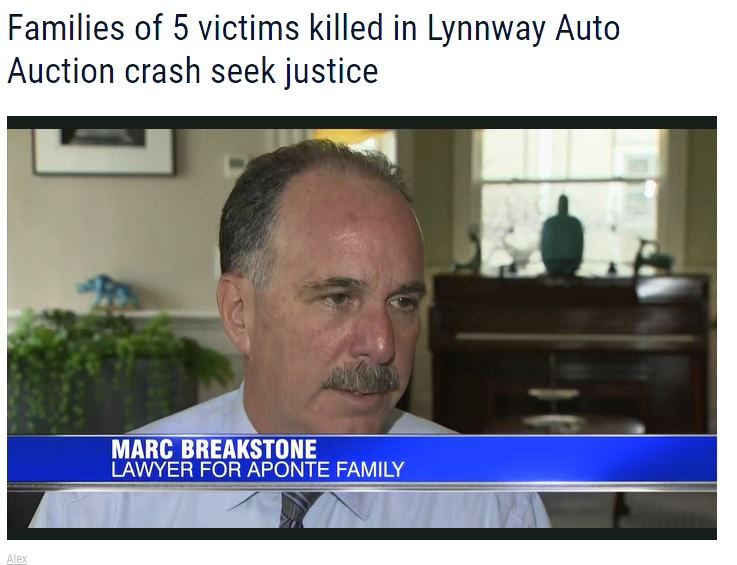
Attorney Marc L. Breakstone, who is representing a family who lost a loved one in the Lynnway Auto Auction crash, speaks to WHDH TV in Boston. Watch.
Attorney Marc L. Breakstone was interviewed by WHDH TV yesterday, following the announcement that the Lynnway Auto Auction, Inc. and company president James Lamb will each face five counts of manslaughter in the 2017 crash killing five people. Breakstone is representing one of the families who lost a loved one.
“This goes beyond normal everyday negligence,” he said. “This was gross negligence that created a dangerous environment for employees and others at the auction.”
Watch the interview on the WHDH website.
Parents: Does Your College Student Think Drowsy Driving is Dangerous?

A new study shows college students are engaging in drowsy driving and do not consider it to be as dangerous as texting while driving and operating under the influence.
As a parent, you have probably talked to your college student about the risks of drunk driving and texting while driving on many occasions. What about drowsy driving? A new study reports college students are not taking this risk as seriously – even as drowsy driving causes an estimated 300,000 traffic crashes each year in the U.S.
The study was published in the February edition of the journal Sleep Health. Researchers conducted four focus groups involving 26 undergraduate students in 2016. Students were asked about their driving behaviors and perceptions about dangerous driving.
Most of the students considered themselves safe drivers, yet they viewed drowsy driving as less risky than operating under the influence of alcohol and distracted driving. Students actually said drowsy driving was “normal” and an “unavoidable part of their lives.” They admitted to drowsy driving in the past. Whether as a driver or passenger, many had actually been in some way involved in a drowsy driving car crash or near accident. In most cases, students were driving alone in the early morning or at night.
Takata Airbag Recalls Continue in 2018
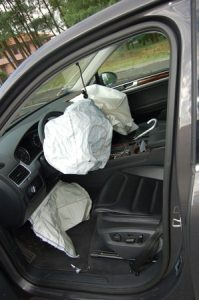 The National Highway Traffic Safety Administration (NHTSA) has expanded the Takata airbag recall by 3.3 million vehicles. The question now is how many more recalls are ahead?
The National Highway Traffic Safety Administration (NHTSA) has expanded the Takata airbag recall by 3.3 million vehicles. The question now is how many more recalls are ahead?
So many drivers have been impacted. To date, 34 million vehicles have been recalled, according to the NHTSA website. USA Today reports the airbags are now responsible for at least 20 deaths, while injuring 180 others. Millions of other drivers have had to wait out a slow replacement process.
The U.S. Department of Justice fined Takata $1 billion early last year. Because there are so many defective airbags, the NHTSA plans to issue phased recalls through December 31, 2019. Older vehicles and those in hot and humid states have received the highest priority. The schedule is designed to repair vehicles before the chemical in the inflator starts to break down.
Background
Even as we drove cars with its airbags, many of us had never heard the name Takata until 2014. This was a hard-to-forget year, bringing two of the largest auto recalls in U.S. history. First came G.M., which was forced to recall millions of vehicles with faulty ignition switches. The company went on to pay a record $35 million fine for failure to report the defect. Mary Barra, chairman and CEO of G.M., had to answer to lawmakers on Capitol Hill.
Then came Takata, the subject of that now famous New York Times report. The Times reported that Takata employees had tested airbags and the company knew they were defective years before speaking up. Under federal law, manufacturers have five days to report defects to the federal government.
The U.S. Department of Justice fined Takata $1 billion in January 2017. At the same time, it charged three Takata executives with wire fraud and conspiracy. The fine included $850 million in restitution for automakers who purchased the defective airbags. Another $125 million was set aside for those injured and their families.
What Drivers Should Know Going Forward
Takata airbags use ammonium nitrate inside the airbag’s inflator. When exposed to hot temperatures and humidity, the chemical can become volatile, exploding and shattering metal pieces into the vehicle.
The new recall is for frontal airbags in certain 2009, 2010 and 2013 vehicles made by 15 automakers. The automakers will provide more information about specific models in a few weeks.
If your car is not impacted, that is great news. But your vehicle may be subject to a future recall. Takata has to file five reports with the NHTSA. The fourth and fifth notices are due December 31, 2018 and December 31, 2019.
If your vehicle has defective airbags, call your dealer immediately to schedule a repair. Other drivers can stay informed.
The NHTSA urges drivers to check Safercar.gov or use its Recalls Lookup Tool periodically. If you check it today, remember that vehicles from the latest recall will be added in a few weeks. You can also sign up for recall alerts and check to make sure your vehicle’s registration is up to date. You want to make sure the manufacturer can contact you without delay.
About Breakstone, White & Gluck
The Boston product liability attorneys at Breakstone, White & Gluck have over 100 years combined experience representing those who have been injured as a result of someone else’s negligence. If you have been injured by a defective product, learn your rights. For a free legal consultation, contact us at 800-379-1244 or 617-723-7676 or use our contact form.
Slow Down! Boston, Cambridge and Other Cities Have Dropped Speeds to 25 MPH
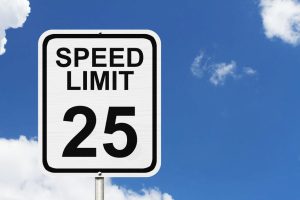 Over the past year, Boston, Cambridge and several other communities have lowered default speed limits from 30 to 25 mph, with a goal of creating safer streets for pedestrians and cyclists. Now it is Quincy’s turn.
Over the past year, Boston, Cambridge and several other communities have lowered default speed limits from 30 to 25 mph, with a goal of creating safer streets for pedestrians and cyclists. Now it is Quincy’s turn.
Last week, the Quincy City Council passed a measure establishing a speed limit of 25 mph, unless another speed limit is posted. The previous speed limit had been 30 mph. Once Mayor Thomas P. Koch signs the new law, officials will decide on an effective date.
In January 2017, the City of Boston dropped its default speed limit from 30 to 25 mph.
Lowering the speed limit was a key part of the Vision Zero Boston campaign, which was launched by Mayor Marty Walsh in 2015. The goal is to end traffic deaths and serious injuries in the City of Boston by 2030, through a combination of efforts, such as reducing speeds, eliminating distracted driving, and improving infrastructure for safer riding, walking and cycling.
While lowering speed limits was a critical step, the City of Boston was unable to act right away.
First, the city had to obtain approval from the state Legislature and Gov. Charlie Baker. Baker signed the Municipal Modernized bill in August 2016, which gave Boston, as well as cities and towns across the state, authority to reduce the default speed limit on local roads.
So far, these communities have reduced speed limits:
- Boston
- Cambridge
- Somerville
- Arlington
- Newton
- Randolph
- Scituate
- Quincy (approved by City Council)
Source: The Boston Globe.
Benefits to Slower Speed Limits
There is strong evidence that slower traffic means safer streets. An excellent example is New York City. In 2014, the city lowered speed limits to 25 mph on 90 percent of its streets. Over three years, traffic fatalities have decreased 23 percent and fell to the lowest number in the city’s history in 2016.
Boston city officials say that when crashes happen, faster vehicles are likely to cause the most serious injuries and fatalities. According to the City of Boston website, at 20 mph, there is a 17 percent likelihood that someone will be seriously injured or killed. At 40 mph, there is a 79 percent likelihood. Slower vehicles can be stopped more quickly, and the slower speeds allow for longer reaction times.
Read More
Will Massachusetts Pass a Handheld Cell Phone Ban for Drivers?
As attorneys, we have represented hundreds of victims of motor vehicle crashes over the past three decades. In recent years, we have seen texting while driving and cell phone use by drivers multiply at an alarming rate, causing a stunning number of injuries and deaths. These injuries are preventable, but each year, drivers continue to reach for their phones and the toll rises.
According to the US Department of Transportation, cell phones are now involved in 1.6 million auto crashes each year, injuring 500,000 people and causing 6,000 deaths. While many states have already passed legislation to reduce distracted driving accidents, some are now considering additional measures, including Massachusetts.
Massachusetts lawmakers passed the Safe Driving Law in 2010, which banned texting while driving. There was no further action until January 2016, when the Massachusetts state Senate passed a bill banning handheld cell phone use. The ban would have allowed drivers to use hands free technology to dial and talk. According to the State House News Service, the Massachusetts House of Representatives gave initial approval to a similar bill but the legislation stalled.
With Governor’s Comments, Handheld Cell Phone Debate Returns to the News
 There was no update for several months. Then Governor Charlie Baker spoke in February, indicating he may not support a handheld ban.
There was no update for several months. Then Governor Charlie Baker spoke in February, indicating he may not support a handheld ban.
“I don’t want to get out of the business of making it possible for people to talk to other people when they’re driving. Because I think the texting thing is a big problem. I’m not sure I believe that the talking thing is,” Baker said during his “Ask the Governor” segment on WGBH Thursday. His comments were published by the State House News Service.
When the show’s co-host noted that drivers could use hands-free Bluetooth devices, Baker said:
“So now we’re just going to let people who can afford to put a Bluetooth in their new car to have the ability to talk when they’re in a car?” Baker responded. “But we’re not going to let anybody else? Hmm. Let me think about that one a little.”
Following the interview, The Boston Herald called on state lawmakers to resume their work to ban handheld cell phones: “Drivers in Massachusetts have proven that when it comes to using their phones behind the wheel they’re incapable of regulating themselves.”
When texting while driving was banned in 2010, texting was the major concern for distracted driving, the Herald wrote. Today, more people have smartphones which offer quick access to social media and other apps.
How Widespread is Texting While Driving in Massachusetts?
Critics say enforcement for Massachusetts’ texting while driving ban is challenging when drivers can hold their phones to talk, but not for other purposes. Police have worked through some of these issues. According to a Boston Globe analysis, Massachusetts police officers wrote 6,131 tickets in 2015, compared to 1,153 in 2011, the first year of the ban. Overall, between late 2010 and mid-April of 2016 when the analysis was published, 18,383 tickets were issued for texting while driving in Massachusetts.Drivers under 40 years old received the most tickets and many drivers got caught during Distracted Driving Awareness Month, when many local police departments receive safety grants for enforcement.
Where Proposed Legislation Now Stands in Massachusetts
Massachusetts is one of 46 states which have texting while driving laws. Just 14 states also ban handheld cell phone use, according to the National Conference of State Legislatures. New Hampshire, Vermont and Connecticut are among the early adopters.
Expect to hear more debate about a handheld cell phone ban in Massachusetts at some point in the future. While Governor Baker has voiced reservations, when the 2017-2018 legislative session began in January, the Massachusetts House of Representatives referred legislation for hands-free cell phone devices to the Legislature’s Joint Committee on Transportation.
Where to Find Distracted Driving Safety Campaigns and Information
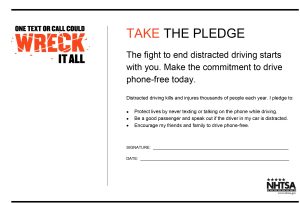
Safety campaigns are critical to preventing distracted driving accidents. There are many out there, offering programs for schools and information online. One effort is from the Massachusetts Academy of Trial Attorneys (MATA), which brings its “End Distracted Driving” program to high schools. We support this campaign. Two of our partners, Marc L. Breakstone and Ronald E. Gluck, serve on the MATA Board of Governors. Partner David W. White is a long-time member.
Another effort comes from the National Highway Traffic Safety Administration (NHTSA), which offers this pledge which family members can sign to promise each other they will not use a cell phone while driving.
Distracted Driving Prevention and Safety Campaigns:
Distraction.gov: Official U.S. website for distracted driving.
It Can Wait!: AT&T’s documentary to stop distracted driving.
Auto Insurance Too Expensive for Many Drivers
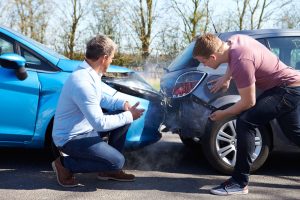 Under the law, Massachusetts drivers must purchase auto insurance before they get behind the wheel. But this is not always cheap. A new study reports auto insurance has become too expensive for 19 million Americans, making it important to shop around so you can find the most coverage for your budget.
Under the law, Massachusetts drivers must purchase auto insurance before they get behind the wheel. But this is not always cheap. A new study reports auto insurance has become too expensive for 19 million Americans, making it important to shop around so you can find the most coverage for your budget.
The report, “Study on the Affordability of Personal Automobile Insurance,” was released in January by the Federal Insurance Office of the United States Treasury. The Federal Insurance Office (FIO) was created by Congress with the passage of the Dodd-Frank Wall Street Reform and Consumer Protection Act of 2010. The office is charged with monitoring consumers’ access to affordable insurance products.
The report found basic liability automobile coverage is unaffordable in 845 zip codes where 19 million people live. Households in those areas had average auto insurance costs which exceeded more than 2 percent of average household income.
Massachusetts is the 10th most expensive state for car insurance, according to the Insurance Information Institute. Drivers pay on average $1,007 per year. New Jersey drivers pay the most nationally, with an average expenditure of $1,254.
The cheapest place to drive is Idaho. On average, drivers there pay just $553 for insurance.
Take time to understand your insurance policy. Before you buy car insurance in Massachusetts, remember these points:
Check out our chart. We have developed this chart and article, “Understanding and Buying Auto Insurance in Massachusetts.”
How much insurance do you need? Drivers must purchase Compulsory Coverage, which includes Bodily Injury to Others, Personal Injury Protection (PIP), Bodily Injury from an Uninsured Driver and Damage to Another Person’s Property. But you should also purchase Optional Coverage. Read more about the different types in our article, “Understanding and Buying Auto Insurance in Massachusetts.”
Underinsured and uninsured coverage. While these fall under Optional Coverage, they are essential. Far too often, drivers do not carry enough insurance of their own or outright ignore the law and do not buy insurance. In these cases, you will need to look to your own Underinsured and Uninsured coverage.
Discounts. You may be eligible for a discount if you purchase your auto insurance and homeowners insurance policies through the same carrier. Auto clubs may also offer discounts.
Cycling accidents. If you are a cyclist, you can purchase coverage to protect yourself in a bicycle accident through your auto insurance policy. It may cost more, but it is worth the investment. Many drivers do not carry enough insurance and you may have to turn to your own policy for compensation.
Shop around. This is your right. Massachusetts deregulated the auto insurance market in April 2008, giving drivers the freedom to research the market and find the best policy for their needs. Pay attention to deductibles; often that is where consumers can negotiate lower rates, but you will usually end up paying a higher deductible if you are found at fault for a car accident.
Factors which may increase your cost. Your age, the type of car you drive and the town where you live can all impact the cost of your auto insurance policy. Before you buy your next car, check in with your agent first.
About Breakstone, White & Gluck
The lawyers at Breakstone, White & Gluck have over 100 years combined experience representing those who have been injured in car accidents. If you have been injured, learn your rights. For a free legal consultation, contact 800-379-1244 or 617-723-7676 or use our contact form.
Teen Driver Safety Week Time to Talk About Safe Driving
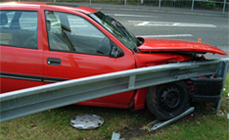 National Teen Driver Safety Week, which takes place from October 14 – October 20, is a good time for parents and teenagers to talk about driving safety.
National Teen Driver Safety Week, which takes place from October 14 – October 20, is a good time for parents and teenagers to talk about driving safety.
Traffic crashes are the leading cause of death for teenagers in the United States. Common causes are inexperience, failure to wear a seat belt, drinking and driving, speeding and distracted driving.
Even if you have already had a conversation in the past, we encourage parents to speak to their teens about preventing car accidents and include these points:
Understand the law.The Massachusetts Junior Operator Law places restrictions on drivers from traveling with passengers under 18 during their first six months of holding a license. The lone exception is for siblings. Junior operators are also forbidden from driving between the hours of 12:30 a.m. and 5:00 a.m.
Wear a seat belt. This reminder is always important. Teenage drivers and their passengers have some of the lowest rates of seat belt use, according to the National Highway Traffic Safety Administration (NHTSA).
No talking or texting on the cell phone. Texting while driving is illegal for any person driving in Massachusetts, and using a cell phone while driving is against the law in Massachusetts for drivers under 18. Teens face steep penalties for violations of either law. For first offenses, they face a 60-day license suspension and other sanctions. Suggest your teen put their cell phone out of sight or in the back seat when driving.
Limit food and beverage consumption. Eating while driving is very distracting. Ask your teen not to eat and to limit beverage consumption while driving. Suggest they eat before leaving home or at another safe place.
Limit driving with other teens. Conversation can be distracting for any driver, especially teens who may be excited about enjoying freedom of the road without an adult.
Avoid loud music. Music of any volume can be a distraction while driving, but loud music and adjusting the radio controls can be especially hazardous for teenage drivers.
No grooming. Remind teens they cannot focus on the road while grooming.
No speeding. Remind teen drivers to watch the speed limit, especially in school zones where they may encounter young children.
You can also:
Drive with your teen. Sit in the passenger seat with your teenager on a regular basis and observe how they handle basic driving tasks, such as stop lights, passing other cars, keeping a safe distance on the highway, and changing lanes. By not using or even checking your cell phone, you can set a good example for your teen. Also refrain from heavy conversation. Finally, unless safety is at stake, hold your suggestions until a few hours later, when you are out of the vehicle and they won’t tense up or get anxious behind the wheel.
Additional Resources
Massachusetts Junior Operator License Requirements
Tips on the Massachusetts Junior Operator Law for Parents
Read More


